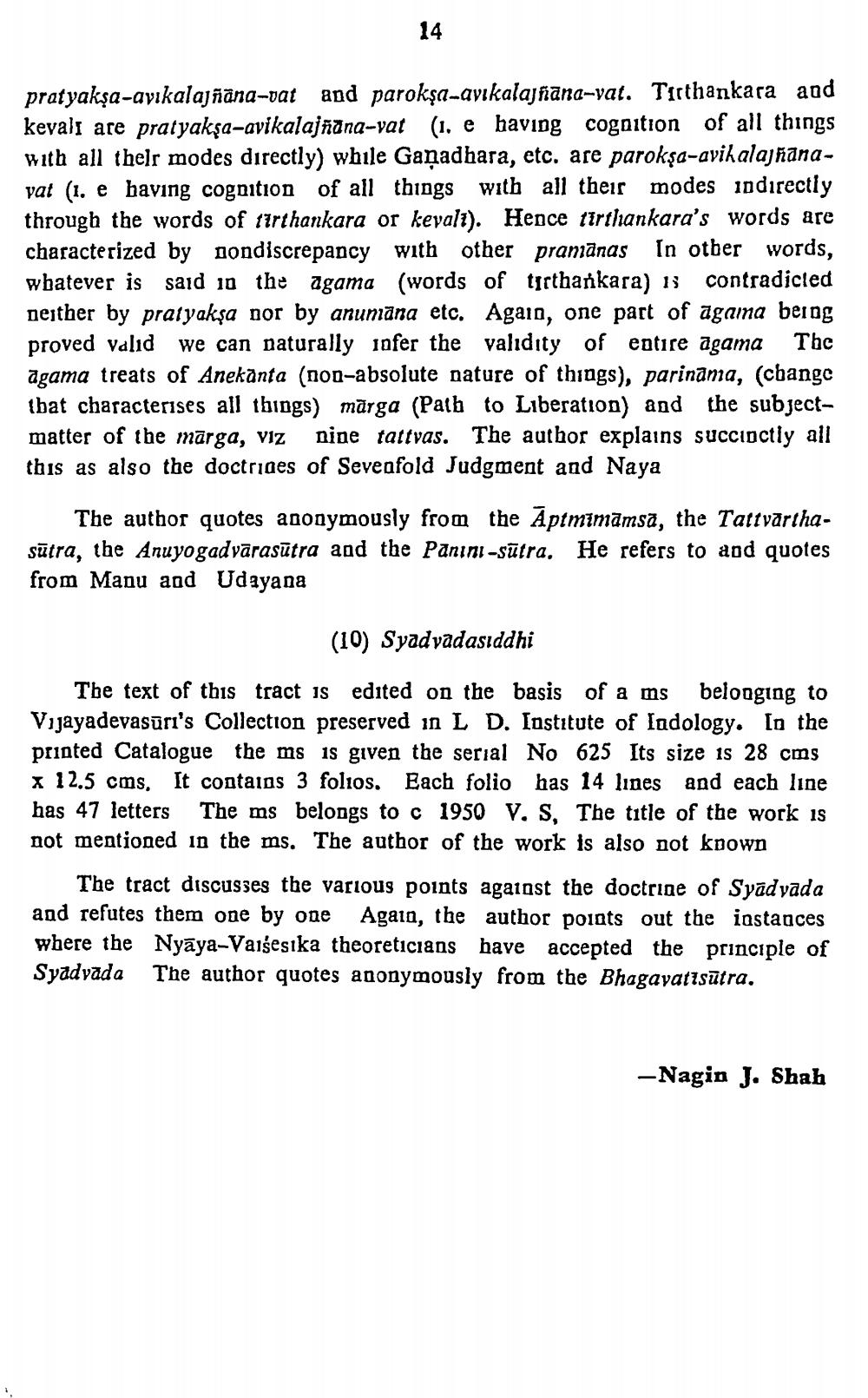________________
14
pratyaksa-avikalajñāna-vat and parokşa-avikalajñāna-vat. Tirthankara and kevali are pratyakşa-avikalajñāna-vat (1. e having cognition of all things with all their modes directly) while Gaṇadhara, etc. are parokşa-avikalajñānavat (1. e having cognition of all things with all their modes indirectly through the words of tirthankara or kevalt). Hence tirthankara's words are characterized by nondiscrepancy with other pramānas In other words, whatever is said in the agama (words of tirthankara) is contradicted neither by pratyakşa nor by anumana etc. Again, one part of agama being proved valid we can naturally infer the validity of entire agama The agama treats of Anekanta (non-absolute nature of things), parināma, (change that characterises all things) marga (Path to Liberation) and the subjectmatter of the marga, viz nine tattvas. The author explains succinctly all this as also the doctrines of Sevenfold Judgment and Naya
The author quotes anonymously from the Aptmimamsā, the Tattvarthasutra, the Anuyogadvarasutra and the Panini-sutra. He refers to and quotes from Manu and Udayana
(10) Syadvadasıddhi
The text of this tract is edited on the basis of a ms belonging to Vijayadevasūri's Collection preserved in L D. Institute of Indology. In the printed Catalogue the ms is given the serial No 625 Its size is 28 cms x 12.5 cms. It contains 3 folios. Each folio has 14 lines and each line has 47 letters The ms belongs to c 1950 V. S, The title of the work is not mentioned in the ms. The author of the work is also not known
The tract discusses the various points against the doctrine of Syadvada and refutes them one by one Again, the author points out the instances where the Nyaya-Vaisesika theoreticians have accepted the principle of Syadvada The author quotes anonymously from the Bhagavatisūtra.
-Nagin J. Shah




